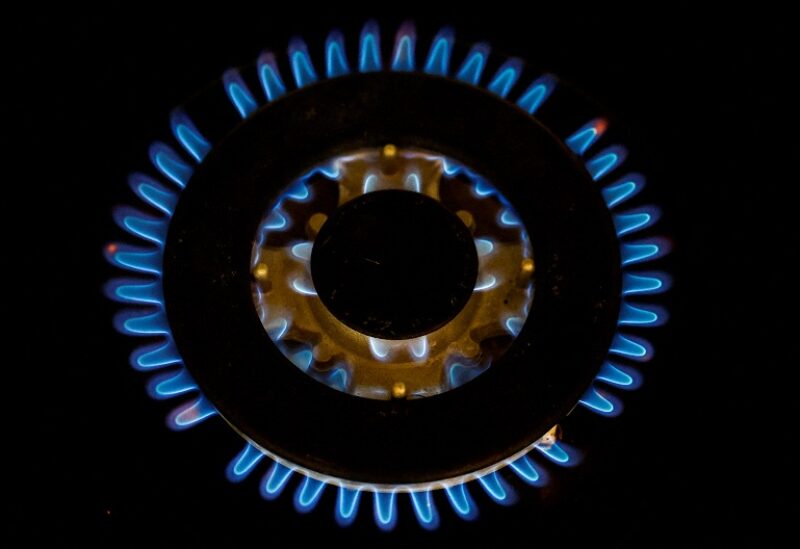
FILE PHOTO: Flames from a gas burner on a cooker are pictured in a private home in this illustration picture taken June 27, 2022. REUTERS/Stephane Mahe/Illustration/File Photo
As the energy crisis triggered by the Russia-Ukraine war laid bare the deficiencies in Europe’s energy strategy, European Union member states are seeking a solution to rapidly surging energy prices through the option of altering the functioning of electricity markets.
Prices of energy products such as natural gas and electricity in EU countries have hit historic peaks since the start of the war in late February.
The price of future contracts per megawatt-hour in Europe, trading on the Dutch-based virtual natural gas trading point (TTF), rose to €340 ($341), up from €28 a year ago and €90 six months ago.
Natural gas prices on European markets thus quadrupled in six months and rose twelve-fold over the course of a year.
The rise stemmed from dropping natural gas flows from Russia to Europe along with concerns that flow levels would not return to their previous levels.
With less natural gas supplies from Russia and the boom in energy demand, prices on the spot electricity market also soared.
Electricity prices in Europe last week hit all-time highs.
In Germany, electricity prices exceeded €700 per megawatt-hour for the first time in August, up eightfold compared to a year ago.
Market intervention
Even Germany, which previously opposed intervention in the market, blames the market for peak electricity prices. Countries such as France, Spain, Belgium, and Greece also agree with Germany.
Bowing to the demands of prominent EU countries, EU Commission President Ursula von der Leyen announced that they would take steps towards better functioning of the electricity market.
“Skyrocketing electricity prices are now exposing the limitations of our current electricity market design,” von der Leyen said on Monday.
Admitting that the bloc’s electricity pricing system, which bases the final price on the latest and most expensive energy source and does not reflect the lower costs of renewables or nuclear power, was developed for different circumstances, Leyen said:
“That is why we are now working on an emergency intervention and a structural reform of the electricity market.”
At this point, resource prices in electricity generation are expected to be decoupled by the EU’s intervention in the electricity market.
It is envisaged that the pricing of renewable energy sources – such as wind and solar – and fossil fuels – such as natural gas or coal – will be differentiated within the market.
Thus, payments for renewable resources are projected to move lower and electricity prices to fall.
However, it has also been suggested that there may be problems in gas supply in the face of this intervention. It seems difficult to persuade manufacturers to sell below free market prices.